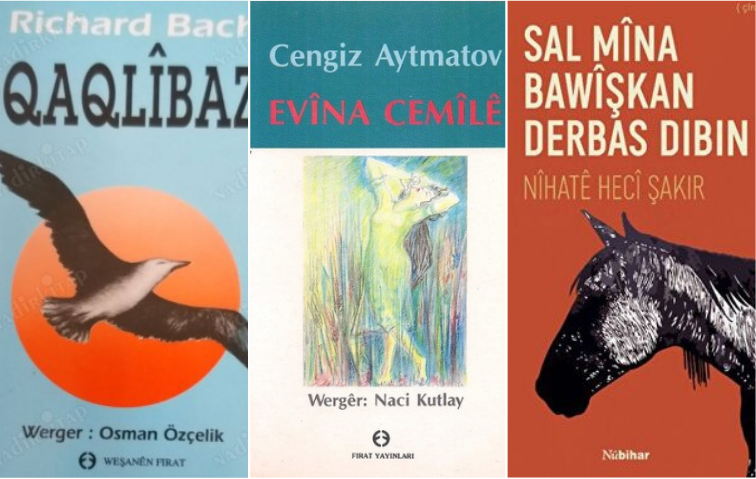Nihati Haji Shakr
At first, I did not know that one day I could write in my own language. If I knew, I would definitely take it easier so that people would understand my writing more easily. I would put my words together one by one like pearls on a lace, but this was not under my control so I postponed it.
In his story "Destroying a Heart", Stefen Zweig says: "Before the fate would affect the soul, it would affect the mind and body."
Believe me, these words and my situation are very much similar.
As I was getting more and more self-conscious and not involved in the real world's issues yet, I had a language for talking and another for reading. Aside from school, people at home and among their friends used to speak in their native language and use another language at school. Even when I was not aware of the letters "Q, Kh, and w" (ق، خ و), I learned some letters at school and I used them to write some simple sentences in my native language. I always had this question in my mind "Why cannot I read in my native language?", but as I said before I was not involved with the real world yet. However, one day people find out about themselves and their stories.
Eduardo Galeano, the author of "The Hunter of Stories", says: "The wind does not leave the idiots' path. The rain washes off people's footprints. The sun collects the time's path. The storyteller, if are not forgotten, will carry on the hidden path of forgotten memory, love, and suffering".
I came to know myself and my story twenty years ago. Back then I did not know that "leaving" is not important but it is "dominating" that matters. As James Joyce says: close your eyes", because "you wanted to escape but you found yourself."
Yes, I always wanted to give up and run away from my country, but after two years of studying, I ran away from Istanbul. I was so happy that I could not believe it. The valleys and mountains were waiting for me and I liked to watch the mountains from the plains. However, this time I had some books that I had enjoyed. When I was reading them one after the other, my father told me: "Son you will learn more than the village's clergyman."
It was not my father's fault. All the clergymen did was reading. They used to read things over the corpses, they used to read things behind people's back secretly, they used to read Mouloudi (a religious ceremony in honor of Mohammad the prophet's birthday) written by Malay Bateyi, and sometimes they wrote it, too but I always wanted to read and write all the time. Thus, I began to read in the language of our school and write in that language. I still did not understand that language and it was not in harmony with my soul. What I was reading was imperfect and what I was writing was not enough.
After a year of living in the city, I went to a bookstore. I entered and said: "I want to learn how to read and write in my native language." The man smiled. Then he showed me a book and said: all these are written in your native language. I felt very happy and I was looking at the books. The man gave me some linguistic books and an encyclopedia. In order to be able to learn faster, I chose the thinnest books: Kurdish Language Lessons (Kamal Burkay) and Barike Encyclopedia (Washani Doz).
The shopkeeper's name was Mihama Nouri but he became Uncle Nouri for me.
From that time on I began to learn to read and write in my native language at home. Whenever I went to the city, I would visit Uncle Nouri to talk in the same language. First, I began reading newspapers and magazines. I still had time to read novels and stories because I had tasted the joy of reading and I was very eager to overwhelm myself in reading. I began to learn every letter. Almost everything that came to my mind and mouth would come to the paper, too. At first, I began with Richard Bach's work, Seagull, published by Firat, and translated by Osman Ozchalik, and Jamila's Love by Cengiz Aytmatov published by Firat and translated by Naji Kotlay. These were the first books. Now I was able to read in my language very well. Later, I needed a bigger encyclopedia and I bought the encyclopedia edited by D. Izoli and I memorized most of the words gradually.
When I reached an age where I could sit at home and read all the time regardless of the world, it was time to go to Istanbul for college. They used to say that Istanbul was the center of all kinds of reading and writing. There were people around me who could read and write in each other's languages but I was still feeling not ready for this. No matter how hard I tried, I could not feel satisfied by myself.
One of my friends once asked me: "How do you write?" I replied: "I want to write like myself."
Yes, after twenty years of writing in my own language, I cannot write in any other language even if I wanted to, however, I always have wanted to write down my words in my own language gradually. Thus, I began to add intentions to my words and I express them in my own language.









